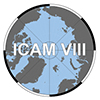|
|
|
|
|
|
|
|
No Arctic science events are planned for today.
|
Media
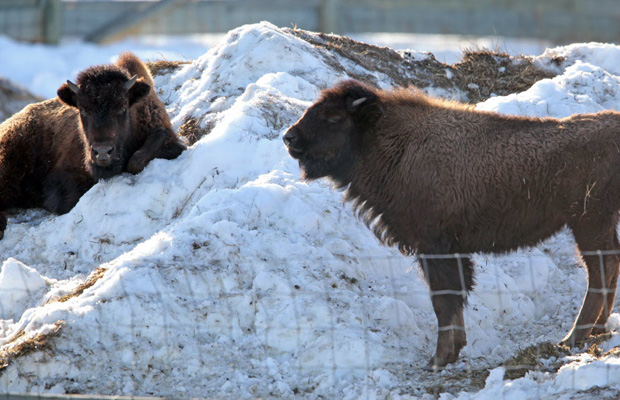 Bison to Battle Global Warming: Project Gathers Large Arctic Herbivores to Transform Tundra. Bison to Battle Global Warming: Project Gathers Large Arctic Herbivores to Transform Tundra. Haines filmmaker Luke Griswold-Tergis has gotten used to air freight companies saying no when he tells them he wants to charter a shipment of 12 bison yearlings from Alaska to Siberia. For the past year, Griswold-Tergis has been trying to coordinate a bison shipment to northeastern Russia for a geoengineering project called Pleistocene Park, which is not always easy to explain in a cold call to an air carrier. The project is an experiment in whether the re-introduction of large herbivores that last walked the Arctic 10,000 years ago can slow the acceleration of global warming caused by permafrost melt. Fairbanks Daily News-Miner
Putin: Russia is Giving Priority Attention to Arctic and Antarctic Studies. President of Russia Vladimir Putin sent his best wishes to Roshydromet workers and all Russian explorers on Polar Explorer Day, saying that the government is giving priority attention to Arctic and Antarctic studies, says a message posted on the Kremlin's website. The president writes in his greetings that the world's first drifting ice station began its work under the leadership of outstanding Soviet researcher Ivan Papanin on May 21, 1937. The team of the North Pole-1station continued in the footsteps of the great Russian explorers of the High Latitudes, Putin said, adding that this breakthrough in Arctic studies largely determined the status of Russia as a great polar nation. The Arctic
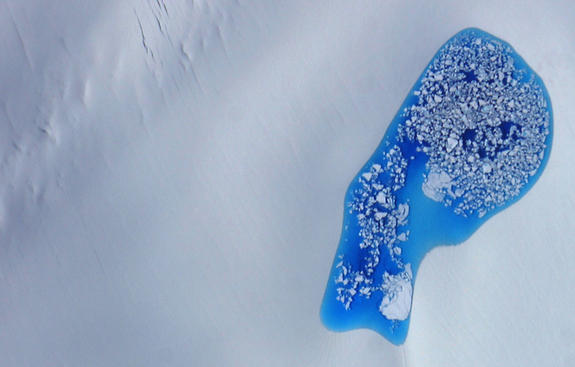 Arctic Ice Brings an Understanding of Ancient Europe's Economy. Arctic Ice Brings an Understanding of Ancient Europe's Economy. Greenland's icy mountains are not an obvious place to search for an archive of economic history, but a study just published in the Proceedings of the National Academy of Sciences shows that they provide one. Joseph McConnell of the Desert Research Institute, in Reno, Nevada, and his colleagues have tracked economic activity in Europe and the Mediterranean over the centuries by measuring variations in the amount of lead in a core of Greenlandic ice. Lead is a good proxy for economic activity because it is a by-product of silvermaking (lead and silver often occur in the same ore, known as galena), and therefore of the money supply. Extracting silver from galena involves boiling off the lead. Winds from Europe carried to Greenland enough lead pollution from this process for it to be preserved in the layers of snow that, compacted, form the island's ice cap. The Economist
Meet Unique Emergency Drone for Arctic Conditions. Commercial shipping, tourism and cruise ship traffic to the Norwegian northern archipelago of Svalbard and the surrounding marine areas have all grown dramatically in recent years, and this growth is set to continue. Norwegian technology companies want to start using drones to improve situational awareness, meet communications needs and make us better able to handle incidents on an emergency. Large geographic distances and areas without satisfactory coverage for mobile communication, VHF or Maritime Broadband Radio (MBR) in the area around Svalbard could prove to be challenging in the event of situations such as accidents or natural disasters. Israel Homeland Security
|
|
Future Events
** New this week ** Lightening Talks on Arctic Research. May 22, 2018 (Webinar). IARPC Collaborations hosts an online science communication training program for early career scientists. In this webinar, seven scientists who recently completed the program will 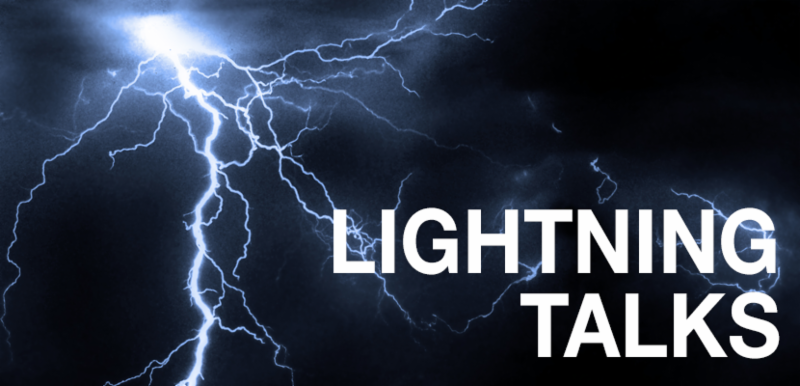 present "lightning talks" (5-minute presentations which require speakers to articulate in a quick, insightful and clear manner) on a variety of Arctic science topics. Join us to see examples of effective science communication, to learn about a wide variety of Arctic topics, and to learn about future opportunities for science communication training through IARPC Collaborations.
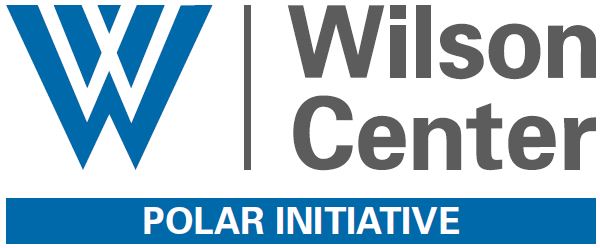 serves as chair of the Arctic Council through May 2019. As part of its chairmanship goals, Finland has committed to advancing meteorological cooperation and capacity building. Further developing meteorological cooperation allows for improved monitoring and observation networks, better management of climate and water-related risks, and more accurate forecasting of meteorological phenomena in the Arctic. In an effort to continue this work, the Embassy of Finland in the US, the Meteorological Institute, and the Wilson Center's Polar Initiative will convene a broad spectrum of representatives to share the results and recommendations from a March meeting, and further advance and explore the current state of Arctic meteorology and the future needs of the scientific community.
This half-day program will focus on the capabilities of the EarthScope Transportable Array and the impact it is having on scientific research and operational monitoring in areas as diverse as earthquakes, weather forecasting, volcanoes, tsunamis, and ecosystems. The hosts are particularly interested in exploring inter-agency / multi-agency interests and opportunities for how the Transportable Array observing capability can be used, particularly with respect to the compatibility of different observing interests. The National Science Foundation has committed only to a short duration deployment but is open to broadening the application to other science observations for longer durations, if the obligation to remove the stations is shared or undertaken by other stakeholders.
- Addressing the energy field of the future;
- Defense energy systems in the North;
- Natural hazards and aerospace/defense;
- Empowering Alaska's entrepreneurs;
- Navigating the changing Arctic; and,
- Developing local and global energy solutions.
The Effects of Climate Change on the World's Oceans, June 4-8, 2018 (Washington, DC USA). The 4th International Symposium will bring together experts from around the world to better understand climate impacts on ocean ecosystems - and how to respond. The event is hosted by a variety of groups including International Council for the Exploration of the Sea (ICES), N. Pacific Marine Science Organization (PICES), Intergovernmental Oceanographic Commission of UNESCO (IOC), and Food and Agriculture Organization of the United Nations (FAO). Session 16 includes Fran Ulmer, Diana Bull, Apurva Dave, Lawson Brigham, and Esther Babson, among others. 
Vision on Marine Infrastructure, June 11, 2018, 1:00-3:00 pm (Washington, DC
).
The U.S. Committee on the Marine Transportation System and its Marine Transportation System Federal partners will share their visions and priorities on maritime infrastructure, which refers to physical infrastructure, informational infrastructure (such as aids to navigation, nautical charts, and real-time meteorological and oceanographic services), and mariner needs. Open to the public, but RSVP is required to access the location. Please contact Jaya.Ghosh@cmts.gov by June 6, 2018 to RSVP. See here
for additional details.
 POLAR 2018, June 15-27, 2018 (Davos, Switzerland). POLAR2018 is a joint event from the Scientific Committee on Antarctic Research (SCAR) and the International Arctic Science Committee (IASC). The SCAR meetings, the ASSW and the Open Science Conference will be hosted by the Swiss Federal Institute for Forest, Snow and Landscape Research WSL under the patronage of the Swiss Committee on Polar and High Altitude Research. The WSL Institute for Snow and Avalanche Research SLF is organizing POLAR2018. POLAR 2018, June 15-27, 2018 (Davos, Switzerland). POLAR2018 is a joint event from the Scientific Committee on Antarctic Research (SCAR) and the International Arctic Science Committee (IASC). The SCAR meetings, the ASSW and the Open Science Conference will be hosted by the Swiss Federal Institute for Forest, Snow and Landscape Research WSL under the patronage of the Swiss Committee on Polar and High Altitude Research. The WSL Institute for Snow and Avalanche Research SLF is organizing POLAR2018.
From Entering the Field to Taking the Helm, Women's Perspectives on Polar Research, June 20, 2018 (Kongresszentrum Davos, Switzerland). This event is hosted by ARCUS and co-sponsored by USARC. Research findings are shaping our understanding of the issues that women face in technical fields, particularly those with strong connections to fieldwork. Concerns include a deficit of female leadership due to the so-called "leaky pipeline," a lack of safety and inclusivity at field locations, and explorations of ways in which research agendas have discounted contributions of women. Despite historical barriers to participation in polar field work, women have made outstanding contributions to polar physical, biological and social sciences, as well as to community-level efforts to coordinate and communicate science. In the past decade, women have stepped into leadership roles at polar institutions. Yet evidence of persistent challenges, reflected both in academic studies and media reports, compels us to examine the sources of those challenges and to explore solutions to ensure a bright future for all those who wish to engage in polar research.
5th European Conference on Permafrost, June 23-July 1, 2018 (Chamonix-Mont Blanc, France). In the continuation of the International and Regional conferences convened by the International Permafrost Association, the 5th European Conference on Permafrost (EUCOP 2018) will be held in Chamonix-Mont Blanc, France, 23rd June - 1st July 2018. The conference aims at covering all relevant aspects of permafrost research, engineering and outreach on a global and regional level. Conference website: here.
Arctic Observing Summit 2018, June 24-26, 2018 (Davos, Switzerland). The Arctic Observing Summit (AOS) is a high-level biennial summit that provides a platform to address urgent and broadly recognized needs of Arctic observing across all components of the Arctic system. AOS 2018 will be held in Davos, Switzerland ( June 24-26) and will focus on pressing issues in the implementation and support of sustained observations that can be addressed through a business-case lens. To that end, short submissions are requested that address any and all aspects of the overarching theme and sub-themes. Additional information can be found here.
17th International Congress of Circumpolar Health (ICCH17), August 12-15, 2018 (Copenhagen, Denmark). The ICCH congresses are held every third year in different locations in the circumpolar area and represent the largest scientific meetings worldwide on circumpolar health. The ICCH congresses serve as the primary source of information exchange and scholarly communication in issues relating to circumpolar health. More than 750 participants generally register and participate in each Congress, and more than 400 scientific papers or posters are usually presented.
UArctic Congress 2018, September 3-7, 2018 (Oulu and Helsinki, Finland). The UArctic Congress 2018 will bring together key UArctic meetings and a science conference into one single gathering, including business meetings of the Council of UArctic, Rectors' Forum, Student Forum, and Thematic Networks & UArctic Institutes Leadership Team. The Congress is an integral part of the Finland's Arctic Council chairmanship program, and open to the public. The event will highlight the themes and priorities of the Finnish chairmanship, including the goals of the United Nations' 2030 Agenda for Sustainable Development, and the Paris Agreement under the UN Framework Convention on Climate Change.
Scientific Exploration of the Arctic and North Pacific (SEA-NorP), September 25-27, 2018 (Mt. Hood, Oregon USA). This workshop will include discussion of hypotheses that can be tested by scientific drilling in the region, the technology necessary to achieve those goals, ideal sites for drilling based on existing data, and where additional site survey data is needed. The goal of the workshop organizers is that multiple proposals will be initiated at the workshop, both for full cruise legs and for shorter, targeted expeditions around the following themes: ocean gateways, geohazards, volatile cycling, ice histories at transition zones, biosphere and climate.
The second Arctic Biodiversity Congress is hosted by the Conservation of Arctic Flora and Fauna (CAFF), the biodiversity working group of the Arctic Council, and the Ministry of the Environment, Finland. The second Arctic Biodiversity Congress will build on the success of the first Congress, held in 2014 in Trondheim, Norway, and will bring together scientists, policymakers government officials, Indigenous representatives, Traditional Knowledge holders, industry, non-governmental organizations, and others to promote the conservation and sustainable use of Arctic biodiversity.
|
|

  
4350 N. Fairfax Drive, Suite 510
Arlington, VA 22203, USA
External links in this publication, and on the USARC's World Wide Web site ( www.arctic.gov) do not constitute endorsement by the US Arctic Research Commission of external Web sites or the information, products or services contained therein. For other than authorized activities, the USARC does not exercise any editorial control over the information you may find at these locations. These links are provided consistent with the stated purpose of this newsletter and the USARC Web site.
|
|
|
|
|
|
|
|
|
 Bison to Battle Global Warming: Project Gathers Large Arctic Herbivores to Transform Tundra. Haines filmmaker Luke Griswold-Tergis has gotten used to air freight companies saying no when he tells them he wants to charter a shipment of 12 bison yearlings from Alaska to Siberia. For the past year, Griswold-Tergis has been trying to coordinate a bison shipment to northeastern Russia for a geoengineering project called Pleistocene Park, which is not always easy to explain in a cold call to an air carrier. The project is an experiment in whether the re-introduction of large herbivores that last walked the Arctic 10,000 years ago can slow the acceleration of global warming caused by permafrost melt. Fairbanks Daily News-Miner
Bison to Battle Global Warming: Project Gathers Large Arctic Herbivores to Transform Tundra. Haines filmmaker Luke Griswold-Tergis has gotten used to air freight companies saying no when he tells them he wants to charter a shipment of 12 bison yearlings from Alaska to Siberia. For the past year, Griswold-Tergis has been trying to coordinate a bison shipment to northeastern Russia for a geoengineering project called Pleistocene Park, which is not always easy to explain in a cold call to an air carrier. The project is an experiment in whether the re-introduction of large herbivores that last walked the Arctic 10,000 years ago can slow the acceleration of global warming caused by permafrost melt. Fairbanks Daily News-Miner Arctic Ice Brings an Understanding of Ancient Europe's Economy. Greenland's icy mountains are not an obvious place to search for an archive of economic history, but a study just published in the Proceedings of the National Academy of Sciences shows that they provide one. Joseph McConnell of the Desert Research Institute, in Reno, Nevada, and his colleagues have tracked economic activity in Europe and the Mediterranean over the centuries by measuring variations in the amount of lead in a core of Greenlandic ice. Lead is a good proxy for economic activity because it is a by-product of silvermaking (lead and silver often occur in the same ore, known as galena), and therefore of the money supply. Extracting silver from galena involves boiling off the lead. Winds from Europe carried to Greenland enough lead pollution from this process for it to be preserved in the layers of snow that, compacted, form the island's ice cap. The Economist
Arctic Ice Brings an Understanding of Ancient Europe's Economy. Greenland's icy mountains are not an obvious place to search for an archive of economic history, but a study just published in the Proceedings of the National Academy of Sciences shows that they provide one. Joseph McConnell of the Desert Research Institute, in Reno, Nevada, and his colleagues have tracked economic activity in Europe and the Mediterranean over the centuries by measuring variations in the amount of lead in a core of Greenlandic ice. Lead is a good proxy for economic activity because it is a by-product of silvermaking (lead and silver often occur in the same ore, known as galena), and therefore of the money supply. Extracting silver from galena involves boiling off the lead. Winds from Europe carried to Greenland enough lead pollution from this process for it to be preserved in the layers of snow that, compacted, form the island's ice cap. The Economist
 present "lightning talks" (5-minute presentations which require speakers to articulate in a quick, insightful and clear manner) on a variety of Arctic science topics. Join us to see examples of effective science communication, to learn about a wide variety of Arctic topics, and to learn about future opportunities for science communication training through IARPC Collaborations.
present "lightning talks" (5-minute presentations which require speakers to articulate in a quick, insightful and clear manner) on a variety of Arctic science topics. Join us to see examples of effective science communication, to learn about a wide variety of Arctic topics, and to learn about future opportunities for science communication training through IARPC Collaborations.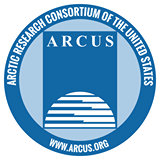 This event is part of the ARCUS Arctic Research Seminar Series and the Empowering Arctic Indigenous Scholars and Making Connections program. The Empowering Arctic Indigenous Scholars and Making Connections program creates space for indigenous scholars to educate and inform policy- and decision-makers engaged in Arctic issues while visiting Washington, DC, and provides a platform for traditional knowledge holders to share their expertise with the wider Arctic research community.
This event is part of the ARCUS Arctic Research Seminar Series and the Empowering Arctic Indigenous Scholars and Making Connections program. The Empowering Arctic Indigenous Scholars and Making Connections program creates space for indigenous scholars to educate and inform policy- and decision-makers engaged in Arctic issues while visiting Washington, DC, and provides a platform for traditional knowledge holders to share their expertise with the wider Arctic research community.

